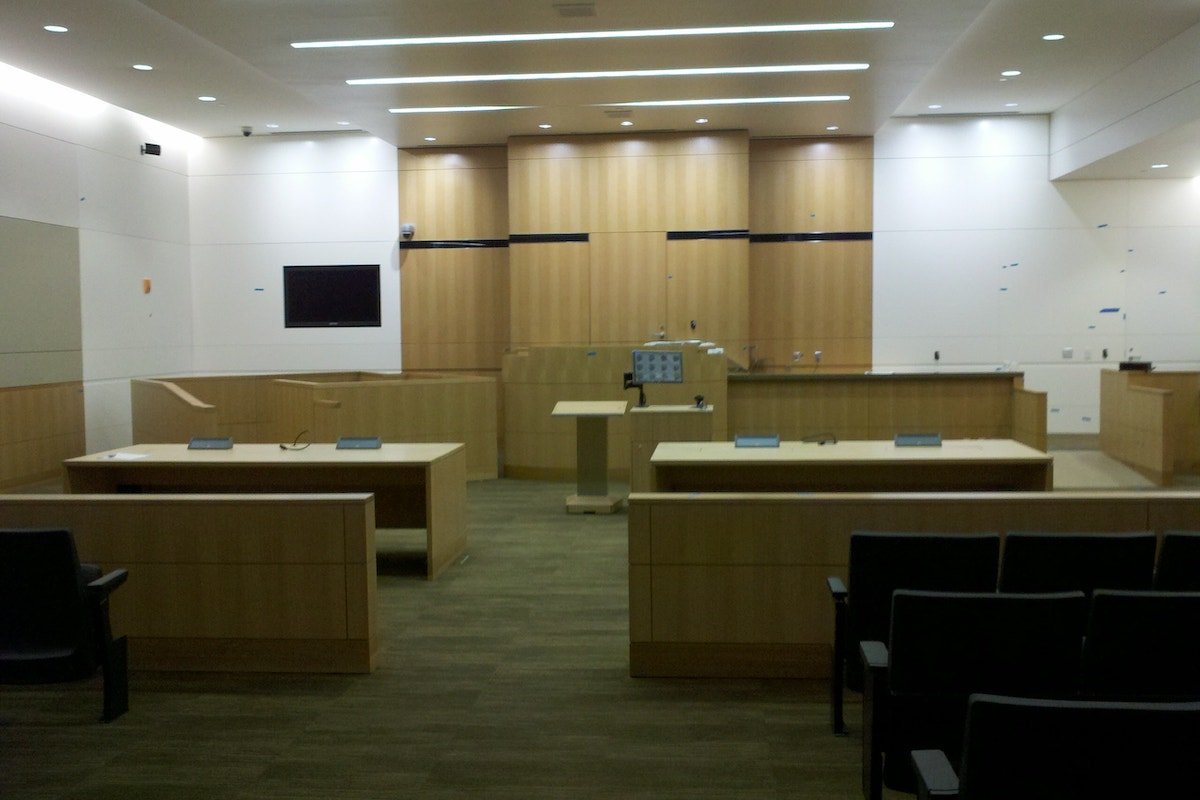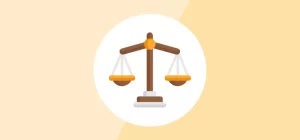Family Court in Arizona
Family court in Arizona handles a wide range of legal matters involving family relationships, including divorce, child custody and support, protective orders, and more. Arizona has a unified family court system, meaning family law cases go through specialized divisions of the Superior Court in each county.
Overview of Family Court Jurisdiction in Arizona
Arizona family courts have authority over family law cases such as:
- Divorce, legal separation, and annulment
- Division of assets and debts
- Child custody and visitation
- Child support and spousal maintenance/alimony
- Establishment of paternity
- Adoption and termination of parental rights
- Domestic violence/protective orders
- Juvenile offenses and dependency
Family court judges in Arizona focus solely on family law matters, allowing them to gain expertise in these complex cases.
Key Locations of Family Court in Arizona
Major family court locations in Arizona include:
- Maricopa County Superior Court in Phoenix and Mesa
- Pima County Superior Court in Tucson
- Pinal County Superior Court in Florence
- Yavapai County Superior Court in Prescott
- Coconino County Superior Court in Flagstaff
Smaller counties may hold family court in their main courthouse or justice complex.
Types of Cases Heard in Arizona Family Court
Thousands of family law cases are filed in Arizona’s family courts each year. The most common types of cases include:
- Divorce – Petitions for dissolution of marriage. Arizona is a no-fault divorce state.
- Child Custody – Cases establishing legal and physical custody, visitation schedules, and parenting plans.
- Child Support – Cases ordering one parent to pay monthly support for minor children.
- Protective Orders – Cases involving domestic violence where the court bars contact or abuse.
- Juvenile Cases – Delinquency, dependency, and emancipation of minors.
Getting a Divorce in Arizona Family Court
Divorce laws and procedures in Arizona family court aim to equitably divide marital property and debts while causing minimal disruption to children’s lives.
Residency Requirements for Divorce in Arizona
To file for divorce in Arizona, either spouse must be a resident of the state for at least 90 days prior. Members of the armed services stationed in Arizona are considered residents for divorce purposes.
Grounds for Divorce in Arizona
Arizona allows no-fault divorce on the grounds of irretrievable breakdown of the marriage. This means neither spouse has to prove marital misconduct. The only requirement is that the marriage is irretrievably broken with no chance of reconciliation.
Divorce Proceedings in Arizona Family Court
The divorce process in Arizona involves the following key steps:
- Filing the petition – One spouse files a petition for dissolution with the court.
- Serving the petition – The petition must be legally served to the other spouse.
- Waiting period – An Arizona divorce case must be pending for at least 60 days before a decree is entered.
- Disclosure and discovery – Parties exchange financial information and may conduct discovery.
- Settlement or trial – Most cases settle, but contested cases go to trial.
- Divorce decree – The judge enters final orders on all issues such as child custody, support, and property division.
Dividing Assets and Debts in an Arizona Divorce
Arizona is a community property state. In general, all assets and debts acquired during marriage are considered marital and divided equitably between spouses. Separate property acquired before marriage or by gift/inheritance is awarded to the owner spouse. Retirement accounts are often divided by QDRO.
Spousal Maintenance/Alimony in Arizona Divorce
Arizona family courts may order one spouse to pay the other spousal maintenance if they need financial assistance. Factors considered include length of marriage, incomes, employment history, and earning potential. Maintenance usually lasts no longer than the length of the marriage.
Child Custody in Arizona Family Court
Child custody cases aim to determine custody arrangements according to the child’s best interests. Judges consider statutory factors like parental fitness and the child’s adjustment to home and school.
Types of Child Custody in Arizona
- Legal custody – Decision-making authority for major issues like education, healthcare, and religion.
- Physical custody – Where the child lives and which parent has parenting time. Can be sole or joint.
- Third-party custody – Custody awarded to someone besides a parent, like a grandparent.
Factors Considered for Child Custody in Arizona
Arizona family court judges weigh these factors, among others:
- Wishes of the parents
- Child’s preference if old enough
- Relationship between child and each parent
- Child’s adjustment to home, school, community
- Mental and physical health of all parties
Modifying Child Custody Orders in Arizona
Custody can be modified if there’s a substantial change in circumstances affecting the child’s welfare. A parent cannot re-litigate the same facts used in the prior order.
Child Custody Evaluations in Arizona Family Court
A custody evaluation may be ordered to provide an impartial assessment of each parent’s abilities and relationship with the child. The parents typically share the costs.
Child Support in Arizona Family Court
Child support aims to ensure children’s financial needs are met and standards of living are maintained post-divorce. Support usually continues until the child turns 18.
How Child Support is Calculated in Arizona
Arizona uses the Income Shares model to determine support. The combined incomes of both parents are considered. Guidelines factor in parenting time and expenses like daycare and health insurance.
Collecting and Enforcing Child Support in Arizona
Child support orders are enforceable by wage garnishment, tax intercepts, contempt orders, and other methods. Interest accrues on unpaid support. Driver’s and professional license suspension are also enforcement tools.
Modifying Child Support Orders in Arizona
Parents can request a modification if financial circumstances substantially change. Support often changes when a child reaches 12 or the paying parent loses a job. The court can also modify custody and support simultaneously.
Domestic Violence and Protective Orders in Arizona Family Court
A protective order aims to prevent further harm and abuse by limiting contact between the petitioner and the defendant. Arizona family courts use protective orders to address domestic violence situations.
Obtaining an Order of Protection in Arizona
A person fearing physical harm or harassment from a family member or partner can petition the court for an emergency protective order. A hearing is held to determine if it should be extended.
Violating a Protective Order in Arizona
Disobeying a protective order in Arizona is a Class 1 misdemeanor. A second violation can be charged as a felony. Harassment, assault, and stalking charges may also apply.
Renewing or Ending a Protective Order in Arizona
Orders of protection typically last one year, but can be renewed annually if the court finds continued threats exist. The defendant must petition the court to end the order early.
Working with an Attorney in Arizona Family Court
Although not legally required, hiring an experienced family law attorney is advisable to protect your rights in complex divorce and custody cases.
Finding a Qualified Family Law Attorney in Arizona
Look for an attorney certified as a family law specialist by the State Bar of Arizona. Also consider reviews, experience, reputation, and legal style. Location near the court is also practical.
Legal Fees and Costs of an Arizona Divorce Lawyer
Average divorce attorney fees in Arizona range from $200-$350 per hour. Simple divorce cases can cost $2,000-$3,000 total. High conflict custody battles cost much more. Get a precise quote upfront.
Alternatives to Hiring a Lawyer in Arizona Family Court
Some options for those who cannot afford full attorney representation include DIY legal forms, limited scope representation, mediation, and legal aid clinics. Resources are available but have limitations.
Conclusion and Key Takeaways
- Arizona family courts resolve divorce, custody, support, and protective order cases through an equitable legal process.
- Understanding the family court system and consulting an attorney helps individuals navigate cases smoothly.
- Judges aim to make rulings focused on the best interests of affected children whenever possible.
- While emotionally difficult, the family court process allows relationships to be legally severed while providing for the future care of families.
Frequently Asked Questions about Family Court in Arizona
Where is family court located in my Arizona county?
Family court divisions will be located in your county’s main Superior Court building or justice complex. Contact your county clerk of court to confirm the precise location.
What are the benefits of filing for divorce first in Arizona?
The spouse who files the initial petition can present their side of issues like property division, support, and custody first. However, there are two sides to every case.
How can I get an annulment instead of divorce in Arizona?
Annulments are granted only in limited circumstances like incest, bigamy, being underage when married, fraud, or mental incompetence. These directly affect marital validity.
What happens if we can’t agree on custody terms during the divorce process?
When parents cannot agree on custody, the judge will order an investigation or evaluation to get input on the child’s best interests before issuing orders.
Can I represent myself in family court without a lawyer in Arizona?
Yes, but it is not recommended for complex contested cases. Legal expertise helps protect your rights and navigate court rules and procedures.







